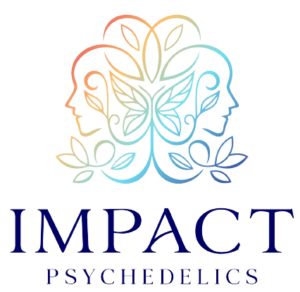
Understanding Ketamine for Anxiety: What You Need To Know
Introduction to Ketamine for Anxiety
Ketamine is an anesthetic administered intravenously, intramuscularly, or by nasal spray. It has been used for decades in medical settings; however, recently there has been increased interest in its use for treating various mental health conditions, including anxiety disorders, post-traumatic stress disorder (PTSD), and major depressive disorder with suicidal ideation. In this article, we discuss the science behind ketamine and how it can be used to treat anxiety.
Definition of Ketamine
Ketamine is a general anesthetic that has been used for many years in medical settings. It is a dissociative drug, meaning it produces a dream-like state of consciousness and can cause hallucinations and out-of-body experiences. It is known to have analgesic, sedative, and anesthetic properties.
Brief History of Ketamine
Ketamine was first synthesized in 1962 by Calvin Stevens, an American chemist. Initially, it was developed as an alternative anesthetic to phencyclidine (PCP), which was known for causing intense hallucinations and delirium in patients. It was first used as a veterinarian drug in the 1970s and later as an anesthetic for humans, especially during World War 2.
Ketamine therapy quickly became popular in the medical field due to its unique properties. It induces anesthesia quickly and effectively, produces minimal respiratory depression, and has a short duration of action. It was FDA-approved as Ketalar in the 1970s.
In the 1980s, ketamine gained popularity as a recreational drug due to its dissociative effects. It was used in subcultures such as the rave scene and among some spiritual groups seeking altered states of consciousness.
How Ketamine is Used for Anxiety
In recent years, ketamine therapy has gained attention for its potential therapeutic uses in treating depression, anxiety disorders, PTSD, mood disorders, and chronic pain. Research has shown that low subanesthetic doses of ketamine therapy can produce rapid antidepressant effects that last for several days.
It works rapidly, often within hours, which can be beneficial for those who are in acute distress. It is believed to work by increasing the levels of glutamate, a neurotransmitter involved in emotions and cognition, hence its positive effects on mood disorders such as generalized anxiety disorder.
Despite its potential benefits, ketamine is still a Schedule 3 controlled substance due to its potential for abuse and dependence. However, it remains an important tool in modern medicine and continues to be studied for its potential therapeutic applications.
How Does Ketamine Work for Anxiety?
The mechanism of action of ketamine during ketamine therapy alludes to its potential for treating anxiety disorders and other mood disorders.
The Science Behind Ketamine
Ketamine interacts with the brain’s glutamate and opioid systems, quickly changing the levels of these neurotransmitters and leading to relief from symptoms of anxiety. This occurs rapidly, within hours of receiving ketamine therapy, rather than the days or weeks it takes for most treatment methods.
In addition, ketamine therapy works to restore the brain’s neuronal connections and increase the plasticity of its pathways. Receiving multiple ketamine infusions has been shown to enhance the activity of norepinephrine (NE) neurons and dopamine (DA) neurons, resulting in the maintenance of the antidepressant action of ketamine. This helps to regulate mood, emotions, and behavior for treating anxiety or depressive symptoms.
How Ketamine Alters Brain Function
Ketamine affects the brain in different ways by blocking certain receptors and activating others. It binds to NMDA receptors, a type of glutamate receptor, which can cause an increase in the activity of excitatory neurotransmitters. This can lead to an increase in glutamate and dopamine levels, which are associated with improved mood.
The Relationship Between Ketamine and Anxiety
Ketamine therapy has been studied in different contexts as a potential treatment for anxiety disorders such as generalized anxiety disorder or social anxiety. A meta-analysis of multiple studies found that ketamine therapy can reduce anxiety symptoms in people with treatment-refractory anxiety disorders, social anxiety and obsessive-compulsive disorder.
It has also been studied as a potential treatment for social anxiety disorder and post-traumatic stress disorder (PTSD).
Types of Ketamine Treatments for Anxiety
Ketamine therapy can be administered in different ways. The most common forms are intravenous (IV) infusions, oral, and intranasal (IN) sprays.
IV Ketamine Infusions
Ketamine infusions are the most common method for treating anxiety, as they allow a precise dose to be administered and monitored closely. During an IV ketamine infusion, patients will receive a low dose of ketamine over several hours while lying comfortably in a reclined chair.
Ketamine (Ketalar) IV infusions are usually administered in a doctor’s office or hospital setting. The effects may start to be felt within minutes and can last several hours due to having 100% bioavailability. It is important to note that IV ketamine infusions are the most expensive treatment option.
Ketamine Nasal Sprays
Ketamine nasal sprays (Esketamine, Spravato) are an alternative to IV infusions. The ketamine is delivered in a liquid form as a spray into each nostril via a metered-dose inhaler. Nasal sprays are typically administered in a doctor’s office and the effects can start to be felt within minutes.
The nasal spray has an advantage over IV ketamine infusions as it allows patients to administer the medication themselves, with help from their doctor, meaning that they do not need to attend regular sessions at a clinic. However, it is important to note that the bioavailability of nasal sprays is lower than IV infusions.
Oral Ketamine
Oral ketamine therapy is an alternative form of treatment for anxiety disorders. This involves taking tablets or capsules and can be done in the privacy of one’s own home. However, due to the low bioavailability of oral ketamine, the effects may take a few hours to be felt and the dosage is difficult to monitor.
It is important to note that oral ketamine for anxiety should only be taken under medical supervision as there are potential side effects, such as drowsiness and confusion.
Benefits of Using Ketamine for Anxiety
The use of ketamine for anxiety disorders has several advantages over other treatments, such as conventional medications and psychotherapy. Some of the benefits include:
Rapid Onset of Effect
Unlike traditional medications that can take weeks to start working, ketamine therapy can provide relief within a few minutes of administration. This is especially true for ketamine that is administered via IV infusions since they have 100% bioavailability.
Patients that have treatment-resistant, severe anxiety disorders or major depressive disorders can find relief quickly, allowing them to resume their daily activities.
Long-Lasting Relief
Ketamine therapy has been found to provide long-lasting relief from anxiety symptoms. It has been shown that a single dose can provide relief for up to two weeks. This long-term relief is especially beneficial for those with chronic or severe anxiety disorders.
Minimal Side Effects
Compared to traditional medications, ketamine therapy for anxiety disorders has been found to have minimal side effects. The most common side effect is drowsiness, but this usually fades after a few hours. Additionally, ketamine therapy does not carry the risk of developing a tolerance or dependence as seen with other medications.
It is important to note that ketamine therapy should always be used under medical supervision as it can have serious side effects if misused.
Considerations Before Starting Ketamine for Anxiety
Before starting ketamine treatment for anxiety disorders, it is important to consider all the potential risks and benefits.
Consultation with a Mental Health Professional
A medical professional should be consulted prior to starting any medication, including ketamine infusions. During the consultation, the doctor can evaluate a patient’s medical history and provide information about potential side effects and drug interactions.
They can also advise you regarding what is required when administering ketamine and the best treatment option for your condition. Also, your doctor should be able to provide information about other available treatments and what to consider when choosing a ketamine provider.
Potential Interactions with Other Medications
It is important to inform your doctor of any other medications that you are taking, as ketamine has the potential to interact with some medications. Your doctor should be able to advise on any medications that can interact with your ketamine therapy and any adjustments that may need to be made.
Possible Side Effects
Although it is generally well-tolerated, ketamine does have the potential for serious side effects. Common side effects include:
- nausea
- dizziness
- confusion
- headache,
- and agitation.
More serious side effects can include:
- elevated blood pressure
- blurred vision
- and difficulty breathing.
About Impact Psychedelics
Here at Impact Psychedelics, we are committed to revolutionizing at-home psychedelic therapy for our customers. We provide comprehensive guidance and resources for those considering receiving ketamine therapy from the comfort of their home to help make the process easier and more convenient for them.
According to our internal research, patients with moderate to severe mental health symptoms have seen a 92% improvement in depressive symptoms, a 95% improvement in pain, and, of course, a 90% improvement in anxiety symptoms.
We understand that starting any form of therapy can be overwhelming, so we strive to make the process smooth, structured, and personalized for our customers. Our team is available to answer questions and address concerns before, during, and after the process.
Final Thoughts On Ketamine For Anxiety
Ketamine has been shown to provide long-term relief from anxiety symptoms with minimal side effects. With proper medical supervision and consideration of potential risks and benefits, it can be an effective treatment option for those suffering from severe or chronic anxiety.
If you are considering using ketamine to treat your own anxiety disorder, Impact Psychedelics is here to support you every step of the way. Our team will guide you through the process and help ensure that your journey toward mental well-being is safe, successful, and rewarding.

